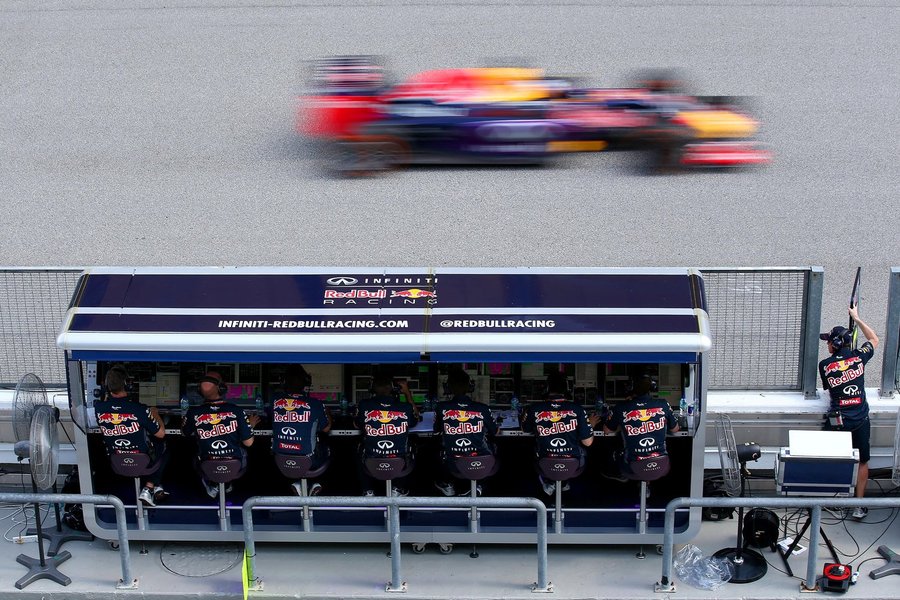he team earned £197,949,000 in outside sponsorship, prize money and bonuses from the F1 organisation, and payments from its ultimate parent company, Red Bull GmbH in Austria.
After taxes and expenses, it registered a profit of just £385,000.
In 2015, its turnover was £181,249,000, or £16,700,000 less than 2016, with a profit of £2,141,000.
Red Bull GmbH made a much bigger contribution to the team in 2016, with its payments rising from £10.1m in 2015 to £40.6m.
That is presumably because the team's decline in performance – from world champion in 2013 to second place in 2014 and a win-less fourth in 2015 – fed through into reduced F1 income in 2016, and thus the company boss Dietrich Mateschitz had to put more into the pot.
Costs went up in 2016 in part because the two GP wins for Max Verstappen and Daniel Ricciardo, coupled a rise to second in the championship, generated increased success bonuses for staff.
The team's true financial situation is hard to compare with that of its rivals, because Red Bull Racing itself only employs 58 people – in effect the race team.
Design, production and engineering is carried out by immediate parent company Red Bull Technology Group, which employs 758 people and also supplies services to Scuderia Toro Rosso and outside projects such as the Aston Martin Valkyrie.
RBT had a turnover of £247.7m in 2016 - including the RBR numbers outlined above - compared with £235.6m the previous year. Its declared profit fell to £8.3m from £11.3m.
Nouvelles connexes



